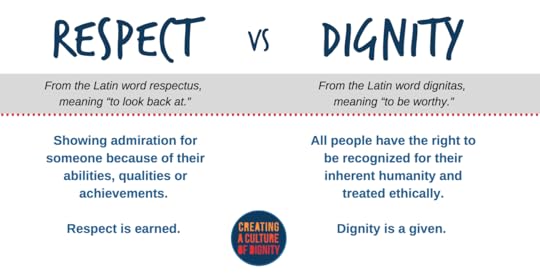Rosalind Wiseman's Blog, page 17
October 31, 2018
Why Young People Are Voting
We asked seven young people why they are voting in the 2018 midterm elections or, if they are under 18, we asked why they should care. Here are their answers.
It is extremely important for young people to vote as we represent one of the most diverse groups, yet our voter turnout is less than optimal. Midterms are equally, if not more important, than general elections. By voting, we are taking control of our own futures and using our voices to improve policies that affect us.
– Emily, 17 (turning 18 this week)
I am voting as I believe it is a privilege to have the capability to influence policy that will affect me and generations to come. Principally, I want my voice to be heard. I feel especially compelled to vote as I currently reside in Pennsylvania, which, as a swing state, is even more influential in representation.
– David, 20
I am almost old enough to vote, which is super frustrating. With so many different sources, opinions, and stories at our fingertips, we have a civic responsibility to take the time to understand the issues that face our world and that we now get to vote on. We need to read different perspectives -perspectives that are completely different from our own – in order to make decisions about our country that are informed. It means doing some homework, but I have faith that my generation understands the gravity of our input because we have grown up in such a highly polarized political climate.
– Annie, 17
If you vote, then you can complain. People who don’t vote can’t complain.
– Charlie, 14

Students marching in support of gun safety March for Our Lives. IMAGE: ROSS TAYLOR/GETTY IMAGES
It is hard not to take it personally when the government of the country I am so lucky to live in doesn’t want my family to have rights, doesn’t want my friends to be here, doesn’t think I should exist with any human rights. So when I see people who don’t want to vote or don’t put the little effort it takes into vote I want to scream. Busyness is not an excuse, stress is not an excuse. It is essential to the wellbeing of our country and our own mental health to vote.
– Marcos, 20
Someone had to fight to get the right for us to be able to vote, so when we turn 18 it is a big deal. When I turn 18, I will vote.
– Kate, 17
Seeing an unexpected and unprecedented result from the last major election which I wasn’t able to participate in has made me want to have my voice heard! the only way I can create change is to use my voice. It’s the first time my generation is able to have a say in a national conversation and if we want things to change it has to come from us. It can’t come from older generations, especially because they have shown us that they grew up with different priorities and values, and I would like to see my own reflected in policy and legislation.
– Marley, 18
Recent Posts
Why Young People Are Voting
How We Can Do Better In The Aftermath Of Hate
Hey, World — Listen Up!
Questions for these young people? Email curious@culturesofdignity.com
Learn about the different ways we work with young people at Cultures of Dignity:
STUDENT VOICE
The post Why Young People Are Voting appeared first on Cultures of Dignity.
October 28, 2018
How We Can Do Better In The Aftermath Of Hate
“Who is wise? One who learns from every person. Who is strong? One who subdues one’s evil inclination. Who is rich? One who is happy with one’s lot. Who is to be honored? One how honors others.” – Pirket Avot (Ethics of Our Fathers) 4:1
This passage is a bridge between our values and our experiences of daily life. And daily life, while it has always been painful, now seems to be an endless reminder of the worst humans can be. Rage-filled people within our own communities turn on us with hate and violence. Our leaders will not put aside their desire to “win” and best each other and by doing so sacrifice common good and decency.
It is easy to be overwhelmed by the constant ugliness, fear, and anger. It is so disappointing to see people in positions of authority offer cliche platitudes as if their words offer any kind of substantive and comforting response.
We are in a battle. Not against each other but against our own fear and anger. We will only begin to win if we do the hard work of facing our fears and demanding ethical courageous leaders.
Treating people with dignity is easy when things are good. When it really matters is when you are angry, when you feel justified to lash out, when you feel that you are defending someone you love. As this week’s acts of domestic terrorism affect so many and undermine our sense of safety, well-being, and belief in the common good, we know that we must speak to power and demand that our leaders act for the good of our communities and our country. Our call for dignity is not naive. It is as written above, subduing one’s evil inclination to dominate is hard work.
We will repair our communities. We will support each other who demand civil discourse and personal responsibility. We will support each other who speak against the incivility, inhumanity, and fear-mongering surrounding us. We will support each other to build communities of dignity where disagreement is welcome and mockery, deceit, and humiliation of others is rejected.
This is our only choice.

BRENDAN SMIALOWSKI/AFP/Getty Images
Here are some resources to talk about hate with young people:
Family conversations about hate incidents, terrorism and bias-motivated violence and lesson plans from the Anti-Defamation League.
Making Caring Common offers tips for parents and educators on how to talk to kids about the unthinkable events in life with your kids.
Teaching Tolerance’s list of lesson plans and information on why and how we must talk about hate so we do not normalize it.
Facing History and Ourselves has an excellent list of antisemitism & religious intolerance resources for middle and high schools students.
Recent Posts
How We Can Do Better In The Aftermath Of Hate
Hey, World — Listen Up!
Standing Against Our Culture of Indignity
The post How We Can Do Better In The Aftermath Of Hate appeared first on Cultures of Dignity.
We Have No Choice: How We Can Do Better In The Aftermath Of Hate
“Who is wise? One who learns from every person. Who is strong? One who subdues one’s evil inclination. Who is rich? One who is happy with one’s lot. Who is to be honored? One how honors others.” – Pirket Avot (Ethics of Our Fathers) 4:1
This passage is a bridge between our values and our experiences of daily life. And daily life, while it has always been painful, now seems to be an endless reminder of the worst humans can be. Rage-filled people within our own communities turn on us with hate and violence. Our leaders will not put aside their desire to “win” and best each other and by doing so sacrifice common good and decency.
Treating people with dignity is easy when things are good. When it really matters is when you are angry, when you feel justified to lash out, when you feel that you are defending someone you love. As this week’s acts of domestic terrorism affect so many and undermine our sense of safety, well-being, and belief in the common good, we know that we must speak truth to power and demand that our leaders act for the good of our communities and our country.
We will repair our communities. We will support each other who demand civil discourse and personal responsibility. We will support each other who speak against the incivility, inhumanity, and fear-mongering surrounding us. We will support each other to build communities of dignity where disagreement is welcome and mockery, deceit, and humiliation of others is rejected.
We have no choice.

BRENDAN SMIALOWSKI/AFP/Getty Images
Recent Posts
We Have No Choice: How We Can Do Better In The Aftermath Of Hate
Hey, World — Listen Up!
Standing Against Our Culture of Indignity
The post We Have No Choice: How We Can Do Better In The Aftermath Of Hate appeared first on Cultures of Dignity.
October 24, 2018
Hey, World — Listen Up!
by Trudy Ludwig
Let’s face it: too much talking and not enough listening has a dangerous polarizing effect, as currently evidenced in the U.S. and around the world. We’re experiencing intense civil discourse because we’ve lost the ability to really listen and understand what our citizens’ needs are and why they aren’t being met. Collaboration and problem resolution cannot take place if we’re all just yelling / tweeting / posting hateful and hurtful messages at one another. All this endless vitriol simply falls on empathy-fatigued, apathetic ears.

Courtesy of Patrice Barton/Alfred A. Knopf Books for Young Readers
Suffice it to say that there’s a lot of horrible adult role-modeling going on these days for our children. Ever the optimist, I’m hopeful that our youth can do better and be better than us.
And, in my work with countless school communities, this hope is nourished by the many Kindness Warriors I’ve encountered, recruited, and engaged with over the years as a children’s advocate and author of books that promote kindness, compassion, inclusion, and acceptance. These Kindness Warriors come in different sizes, colors, genders, and ages. What do they have in common? They are active, compassionate listeners; they may not be able to get rid of all the hurt in our world, but they can help us get through it. And because Kindness Warriors really listen to what others have to say, they’re much more proactive in making positive change happen.
“The most basic of all human needs is the need to understand and be understood. The best way to understand people is to listen to them.”
― Ralph G. Nichols
So how can we help kids of all ages understand that too much talking can get in the way of listening, and, in turn, connecting, collaborating, and problem solving with those around them? Here are some helpful tips:
Plan what you want to say before speaking. Avoid rambling by learning to “speak in headlines.”
Use a respectful, positive inside voice when sharing. Shouting shuts down listening.
Don’t interrupt others. Let talkers finish their own sentences.
Take turns listening and talking, so everyone gets a chance to share their perspective.
Ask questions (e.g., “What do you think?” “What do you want to do?” or “Do you have any ideas or suggestions?”) to generate thoughtful two-way conversations.
Give your full attention to the person talking. Look them in the eye. Be open and respectful.
Repeat what you heard to make sure you understand what the talker said.
Are you talking too much? Pay attention to the listener’s body language and facial expressions. If they don’t look at you and seem distracted, bored, or upset, stop talking.
The benefits of being a good listener are bountiful—the most prominent being that while talking may prove a point, listening can open your heart.
Recent Posts
Hey, World — Listen Up!
Standing Against Our Culture of Indignity
Meet Kate! Interview with Fall Intern
 Trudy Ludwig is a nationally renowned speaker and bestselling author of children’s books that help kids connect with their peers in kind, caring ways. Her newly released book, Quiet Please, Owen McPhee! (Knopf/Penguin Random House) helps young readers to understand the power of listening—not only with their ears, but also their heart. For more information about Trudy and her work, visit www.trudyludwig.com
Trudy Ludwig is a nationally renowned speaker and bestselling author of children’s books that help kids connect with their peers in kind, caring ways. Her newly released book, Quiet Please, Owen McPhee! (Knopf/Penguin Random House) helps young readers to understand the power of listening—not only with their ears, but also their heart. For more information about Trudy and her work, visit www.trudyludwig.com
The post Hey, World — Listen Up! appeared first on Cultures of Dignity.
October 2, 2018
Standing Against Our Culture of Indignity
It feels like we keep going down and it won’t stop. People in positions of authority whose job it is to represent our citizenry and our values can’t be trusted to be ethical, compassionate and informed. We are living in a culture of indignity. We are consistently betrayed by our leaders.
Over the last few days, we have traveled around the country and been struck by how desperate people are to change this culture. In Dallas, we spoke to over 1,500 people at the Momentous Institute Changing the Odds Conference. In Chicago, to hundreds of Christian school administrators at the Council for Educational Standards and Accountability.
Over and over again we heard people saying we need to do something. People wanting to have hard conversations so we can begin to repair the damage we see in our communities–be it our national community or as local as our schools and families.
At Cultures of Dignity, we believe in speaking truth directly and listening respectfully and intently. We know that’s what people want.
So how do we do this? First, let’s say what is a waste of our time:
Complaining online
Changing the color/border of our social network profile pictures
Arguing with family and friends on social media over who is right and who is wrong
Giving up
We know many people are saying there is no point in coming forward. And while we are mortified that a woman’s experience with sexual assault seems to come as a shock to many of our national leaders and isn’t given the seriousness it deserves, we know that has been the reality for years. It was nauseatingly real to see Kavanaugh’s imperious rage at having his reputation questioned. He personified the narcissism and privilege that long ago infected people in positions of power.

Women gathered to protest on the day that Brett Kavanaugh and Christine Blasey Ford testified on Capitol Hill, on September 27, 2018. Matt McClain/The Washington Post via Getty Images
With all respect to people who are frustrated and dispirited, it has never been easy to bring light to abuse. It has always been a fact that if you challenge people who have power for whatever reason, they will try to silence you, if not destroy you. People of color know this–it is and has been their lived experience every day for generations. What’s happening now has always happened, it just feels worse because people are speaking out more and still getting slammed for it.
We have a choice to make. How are we going to show up in these moments?
Accept that speaking truth to power is hard ongoing work that requires courage on your part.
Accept the fact that while people have the right to be treated with dignity, it has always been the case that there will be others who will try to take that dignity way.
Vow that you will affirm the dignity of the person who is coming forward with a story of abuse.
Affirming the dignity of this person doesn’t take away your responsibility towards the person he or she is accusing. We treat all people with dignity.
Look for ways to have meaningful uncomfortable conversations with others where you both can share.
Understand that people, especially, young people have questions and we have to create the culture where it’s ok to ask them.
When we do talk to our children, begin by asking them what they have learned about the world in the last few weeks. Listen and then tell them what you value.
Vow that you will affirm the dignity of the person who is coming forward with a story of abuse. Affirming the dignity of this person doesn’t take away your responsibility towards the person he or she is accusing. We treat all people with dignity.Click To Tweet
We can’t wait for someone else to do the hard work of building common decency. No one else is coming to help us out of this. But we are more than up for the challenge.
Let’s get to work.
Recent Posts
Standing Against Our Culture of Indignity
Meet Kate! Interview with Fall Intern
Creating a Cellphone Policy That Works for Everyone
This originally appeared in our newsletter. Join our newsletter community!
SIGN UP
The post Standing Against Our Culture of Indignity appeared first on Cultures of Dignity.
September 28, 2018
Meet Kate! Interview with Fall Intern
Meet Cultures of Dignity’s Newest Intern!
Cultures of Dignity: Tell us a little about yourself!
Kate: I’m Kate. I play basketball and soccer and love being a part of a team atmosphere. I love to write and spend time co-editing a literary magazine at my school. If I could spend all of my time in the mountains, hiking, backpacking, and camping, I would.
Cultures of Dignity: Why are you working with Cultures of Dignity this fall?
Kate: After working with the school counselor for a year to create a more compassionate atmosphere at my school, I became conscious of the ways that school can isolate people. I am excited to work at Creating Cultures of Dignity because I will be able to talk about topics that teenagers deal with daily and help brainstorm ways to teach students about said topics.
Cultures of Dignity: If you could have any superpower what would it be?
Kate: I would be able to freeze time so I could finish my homework, read a good book, take my dog on a hike, and watch a season of The Office in one night.
Cultures of Dignity: What projects will you be working on with CoD?
Kate: I will be helping reframe curriculum lesson plans and writing articles exploring impacts of social media, body image, learning disabilities, and other topics on teenage lives.
Cultures of Dignity: What is an issue you see in schools you want to fix?
Kate: I notice a lot of comparison between students at school. Whether it’s grades, test scores, number of followers on Instagram, or amount of friends on Snapchat, I observe both myself and others constantly evaluating themselves against those around them. This is unhealthy and leads to jealousy and judgment based on superficial benchmarks instead of character.
Learn about how we work with young people:
STUDENT VOICE
Recent Posts
Meet Kate! Interview with Fall Intern
Creating a Cellphone Policy That Works for Everyone
Student Government Doesn’t Have To Be A Joke
The post Meet Kate! Interview with Fall Intern appeared first on Cultures of Dignity.
September 17, 2018
Creating a Cellphone Policy That Works for Everyone
By Rosalind Wiseman
TweetSharePinEmail
It’s common sense: Kids need consistent rules and expectations about how to be good citizens. The most common places they’re going to encounter these rules are at home and at school. While social media and technology rules follow similar standards, it can be challenging for teachers and parents to get on the same page.
Different families have different technology rules and norms about social media. At the same time, children come to school and are expected to follow the school’s technology and social media rules, which may or may not align with the rules at home.
As an educator, one way to begin bridging the gap is to model for families the social media norms in your classroom and then communicate those values and rules to parents. You are the teacher, and students look to you to create a culture of dignity in your classroom.
In some classrooms, students put their phones in a basket near the teacher’s desk and get them back at the end of the period. But teacher preferences and school policies vary. Sometimes students legitimately need their phones for schoolwork or other reasons. If students are allowed to have their phones on their bodies or in their backpacks during school, they’re no doubt going to use them for non-academic purposes at some point. Teachers then need to incorporate technology rules into their overall classroom guidelines.
Given all those variables, what are our challenges, and how do we address them effectively? First, let’s look at the challenges. I’m sure you could add to this list, but this is what I see most often in schools around the country:
Schools have technology policies, and they’re usually pretty good at making parents pay attention to them at the beginning of the school year. But we all tend to forget about them once school is underway — until a child gets into trouble.
Teachers can feel helpless and frustrated when parents back up their child instead of working with the teacher to enforce the rules.
Even the best parents can be overwhelmed or simply unable to keep track of their child’s behavior online.

DREW ANGERER/GETTY IMAGES
Now let’s look at what we need to remember:
Like any topic students learn, effective classroom behavior guidelines require constant practice. We also understand that the learning process includes making mistakes. A teacher’s job is to consistently model these norms and fairly apply the rules.
But students need to be our partners in developing these technology rules. In the words of Lara, one of our editors at Cultures of Dignity, “If students are part of the rulemaking process, then they are less likely to break the rules.” Try the following activity to get students involved in the process.
Classroom Activity: Develop Class Technology Rules
Try combining your classroom guidelines with the school’s technology policies.
Here’s a suggestion for getting started:
Teacher says: “We all know the school has a technology policy. Anyone remember what it is?” (Listen to the crickets or a few general statements.) “I have the policy right here, so let’s read it and then make it our own.
“While the school’s policy is important, and we have to follow it, let’s create some agreements among ourselves about how we use technology, social media, and our phones in class to make it realistic. We’re doing this so we can all focus and enjoy ourselves in our class, and I won’t annoy you with constant nagging about using your phones. Using the school technology rules as the starting place, let’s figure out … ”
Teacher asks the class:
“When do we use social media and/or our phones in our class?”
“When do we agree not to use social media and/or our phones in our class?”
“What should happen if someone doesn’t follow our technology rules? And I include myself in that. I am not above these technology rules.”
Teacher says: “I also want to share some research so you can make good decisions for yourself about how to use your phone and meet whatever goals you have for yourself. You may know some of this, but I think it’s important to integrate into our conversation. Multitasking between homework and checking social media decreases your ability to do your work well. Bouncing back and forth from work to checking our news feeds, commenting on other people’s social media, and posting things ourselves reduces our ability to learn.
“You also need time to sleep without interruption. Research shows that no one (students, teachers, or parents) can sleep as they should when the phone is by your head.
“It comes down to being educated and taking ownership of how you use technology and social media. That goes for all of us — including me.”
After you come up with the guidelines, end the lesson by saying something like this:
“Our class guidelines are based on what we agree together. These technology rules may be different from what you’re used to or what you do in your family. That’s the reason I want your parents to know what we decided, so I’m going to share our agreements with them. If we need to improve our agreements as the year goes on, let me know your thoughts, and I will schedule time for further class discussion.”
Then, follow up with an email to parents detailing what you covered in class and a reassurance that you are in this together. Parents will know your standards and be empowered to reinforce their own rules at home.
So let’s have patience and look for opportunities to support each other. Let’s model for families what you’re doing in the classroom and then communicate those values and rules to the parents. They may do things differently, but at least they know where you stand and why.
This originally appeared on Common Sense Media here.
Recent Posts
Creating a Cellphone Policy That Works for Everyone
Student Government Doesn’t Have To Be A Joke
VIDEO: Respect vs Dignity
The post Creating a Cellphone Policy That Works for Everyone appeared first on Cultures of Dignity.
September 6, 2018
Student Government Doesn’t Have To Be A Joke
The following excerpt on student government is from The Guide Chapter 8: Leadership and Divided Loyalties. The Guide: Managing Douchebags, Recruiting Wingmen, and Attracting Who You Want is a book written by guys for guys with the assistance of Rosalind Wiseman. The book takes experiences from teenage boys across the country and offers advice on important topics and common problems in teenage guys lives but are rarely talked about.
Student Government Doesn’t Have to be a Joke
Lots of guys are voted into student government leadership positions because they’re funny and popular, but they have little intention of working hard once they’re there. Meanwhile, people with more substance who would have worked much harder in the job don’t get elected. If you’re the popular guy who won the election, it’s not your fault that enough of the student body voted for superficial humor over substance. But once you have the job, get off your ass and honor the commitment you signed up for.
What does that mean? If you’re elected to student government, it’s your responsibility to represent your constituency: the entire student body. Seek out the people you don’t know well and who aren’t in your social circles and ask them what they’d like from you and the school this year. Ask students and faculty what previous student presidents in the position did well or poorly. Look for ways to bring different people forward and make them more visible in the school.
Don’t make your speeches during assemblies only about how great the school is, don’t make inside jokes that only your friends get, and don’t make fun of any event that you have to announce. Promise to work on things that matter to the whole school as well as students left on the margins and make sure all the students know they can talk to you, especially if they disagree with you. All schools have serious issues that can be effectively addressed by a competent student government. Don’t be a lapdog to anybody.

Image via Shutterstock
It probably won’t bother you too much if you lose to someone you think is capable. But it’s incredibly frustrating if you lose to someone who’s funnier than you but has shown no interest in actually taking the job seriously. Don’t sit there and wallow in anger. Be angry for a few days, but then demonstrate your strength of character by showing that you’re not going to be stopped by one loss. Plus, other opportunities that may be smaller in scope but more meaningful may come up. It may not be as public as student body president, but look for positions where you can accomplish an agenda you set out.
There really is a silver lining here if you can find one of those smaller positions. As the student body president, you can’t usually call student assemblies, and it can be really challenging to get the entire student community mobilized for a common purpose. As the head of a team, the student newspaper, or a club, it is much easier to accomplish what you want to do.
Unfortunately, you have grown up in a time when you’ve seen student government leaders touted as upstanding and honorable either take the neutral position or outright support their peers who abuse power. It’s also true that the more unquestioned public power a leader has, the more likely he is to sacrifice people’s dignity to maintain his institution’s appearance of greatness. True greatness only comes from having the courage to constantly examine how power and leadership are exercised. Aspire to greatness.
True greatness only comes from having the courage to constantly examine how power and leadership are exercised. Aspire to greatness.Click To Tweet
Recent Posts
Student Government Doesn’t Have To Be A Joke
VIDEO: Respect vs Dignity
VIDEO: Rosalind Wiseman on Anderson Cooper Full Circle
The post Student Government Doesn’t Have To Be A Joke appeared first on Cultures of Dignity.
August 28, 2018
VIDEO: Respect vs Dignity
What’s the difference between respect vs dignity? Does it matter?
Understanding the difference is essential and a key reason why we are struggling so much as a society. At Cultures of Dignity our foundation is based on respect and dignity but distinguishing between the two can be confusing. Here, Cultures of Dignity Co-founders Rosalind Wiseman and Charlie Kuhn explore the differences between dignity and respect.
Dignity: From the Latin word dignitas, meaning “to be worthy.”
As in: All people have the right to be recognized for their inherent humanity and treated ethically. Dignity is a given. You just have it and no one can take it away.
Respect: From the Latin word respectus, meaning “to look back at.”
As in: showing admiration for someone because of their abilities, qualities or achievements. Respect is earned. You are respected by others for what you have achieved, experienced and how you have handled yourself as you have achieved accomplishments.
Filmed, edited, and directed by our Videography & Research Intern Tré Garnett. Co-directed by Cultures of Dignity Marketing Intern Keila Roberts

Recent Posts
VIDEO: Respect vs Dignity
VIDEO: Rosalind Wiseman on Anderson Cooper Full Circle
Third Space Podcast: Rosalind Wiseman and Tré Garnett on Opening the Conversation

 Follow
Follow


The post VIDEO: Respect vs Dignity appeared first on Cultures of Dignity.
August 22, 2018
VIDEO: Rosalind Wiseman on Anderson Cooper Full Circle
 Watch Rosalind Wiseman on Anderson Cooper Full Circle discuss the impact of social media.
Watch Rosalind Wiseman on Anderson Cooper Full Circle discuss the impact of social media.
There’s a new warning out to drastically reduce kids’ time on phone and computer screens issued by the American Heart Association. Rosalind Wiseman on Anderson Cooper discusses how we can best support young people’s healthy use of screen time.
Rosalind shares tips on managing kids (and adults) in the digital age. Anderson admits that even his Instagram account makes him feel like he’s missing out!
Recent Posts
VIDEO: Rosalind Wiseman on Anderson Cooper Full Circle
Third Space Podcast: Rosalind Wiseman and Tré Garnett on Opening the Conversation
To Tell Or Not To Tell: How To Respond When Our Kids Confide In Us

 Follow
Follow


The post VIDEO: Rosalind Wiseman on Anderson Cooper Full Circle appeared first on Cultures of Dignity.





